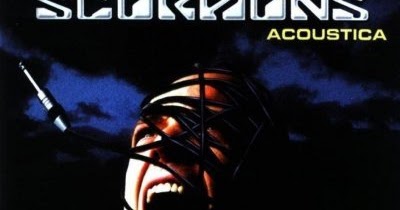

The album was a huge step forward for Scorpions and firmly established their hard rock formula, while at the same time garnering a substantial fan base, both at home and abroad. In Trance marked the beginning of Scorpions' long collaboration with German producer Dieter Dierks. It wasn't until the following year that the band hit their stride with the release of In Trance. He later joined German progressive rock band called Eloy in 1976 and recorded three albums with them. Soon after, Jürgen Rosenthal had to leave as he was being drafted into the army, and was replaced by a Belgian drummer, Rudy Lenners. Achim Kirschning decided to leave after the recordings but subsequently guested on keyboards for the next two albums. The album proved to be more successful than Lonesome Crow and songs such as Speedy's Coming and the title track began to establish the band's sound. Rise to popularity (1974-1978) In 1974 the new line-up of Scorpions released Fly to the Rainbow. While there were more members of Dawn Road than Scorpions in the band, they decided to use the Scorpions name because they had released an album and were known in the German hard rock scene. Roth persuaded Rudolf Schenker to invite Klaus Meine to join, which he did soon after. Rudolf Schenker attended some of Dawn Road's rehearsals and ultimately decided to join the band, which consisted of Roth, Francis Buchholz (bass), Achim Kirschning (keyboard) and Jurgen Rosenthal (drums).


Rudolf decided that he wanted to work with Roth but did not want to resurrect the last Scorpions lineup. He had been offered the role as lead guitarist in Scorpions after Michael Schenker's departure but turned the band down. In 1973, guitarist Uli Roth, a friend of the Schenker brothers, was in a band called Dawn Road. The departure of Michael Schenker led to the break up of the Scorpions. Uli Roth was then called in temporarily to finish off the tour. At the end of the tour the members of UFO offered guitarist Michael Schenker the lead guitar job an offer which he soon accepted. During the Lonesome Crow tour, Scorpions opened for upcoming British band UFO. In 1972 the group recorded and released their debut album Lonesome Crow with Lothar Heimberg on bass and Wolfgang Dziony on drums. Things began to come together in 1969 when Schenker's younger brother Michael and vocalist Klaus Meine joined the band. At first, the band was school-kind with beat influences and Schenker himself on vocals. Hence the name Rock You Like a Hurricane Formation and early history (1965-1973) Rudolf Schenker, the band's rhythm guitarist, set out to find a band in 1965. Song Origin, The song Rock You Like a Hurricane was created because Klaus Meine and the band wanted a song that thanked all his fans and the song was a reminder to the band of how all the Scorpions world wide fans made them feel. The consensus of the time thought MTV wouldn't hold a dime to to the already popular television/music shows of the time Midnight Special, Hee Haw, Soul Train and American Bandstand and would fade away into the history books. They had no money to buy a big video collection of any artists and the owners of MTV got no money/backing of any big studio. Rock you like a Hurricane was overplayed by MTV because RCA wouldn't let MTV have any of Scorpions old videos. Wind of change and Rock you like a Hurricane pushed The Scorps into the Limelight because of the heavy MTV push to please young rockers of the time. Only after the commercial success of Blackout did they start to get heavily pushed into the mainstream media of the U.S. The Scorps known to metal heads of the time, reminisce more of Lonesome Crow  Along with Metallica, Iron Maiden, AC/DC, KISS, Aerosmith, Ozzy Osbourne and Deep Purple they are one of the most successfull hard rock/heavy metal acts. The band has sold over 100 million records worldwide. Scorpions are a hard rock band from Hannover, Germany, best known for their 1984 rock anthem Rock You Like a Hurricane and their singles Wind of Change, No One Like You, Still Loving You, and Send Me an Angel.


 0 kommentar(er)
0 kommentar(er)
